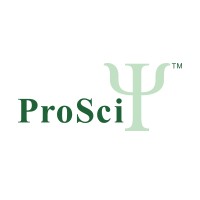RPL9 / Unconjugated /
Product Details
| Description | RPL9 Antibody | |
|---|---|---|
| Conjugate | Unconjugated | |
| Clone | ||
| Target Species | Canine, Human, Mouse, Rat | |
| Applications | WB | |
| Supplier | ProSci | |
| Catalog # | Sign in to view product details, citations, and spectra | |
| Size | ||
| Price | ||
| Antigen | ||
| Host | ||
| Isotype |
About RPL9
Ribosomes, the organelles that catalyze protein synthesis, consist of a small 40S subunit and a large 60S subunit. Together these subunits are composed of 4 RNA species and approximately 80 structurally distinct proteins. This gene encodes a ribosomal protein that is a component of the 60S subunit. The protein belongs to the L6P family of ribosomal proteins. It is located in the cytoplasm. As is typical for genes encoding ribosomal proteins, there are multiple processed pseudogenes of this gene dispersed through the genome. Alternative splicing results in multiple transcript variants. [provided by RefSeq, Feb 2016]
Ribosomes, the organelles that catalyze protein synthesis, consist of a small 40S subunit and a large 60S subunit. Together these subunits are composed of 4 RNA species and approximately 80 structurally distinct proteins. This gene encodes a ribosomal protein that is a component of the 60S subunit. The protein belongs to the L6P family of ribosomal proteins. It is located in the cytoplasm. As is typical for genes encoding ribosomal proteins, there are multiple processed pseudogenes of this gene dispersed through the genome. Alternative splicing results in multiple transcript variants. [provided by RefSeq, Feb 2016]
Experiment Design Tools
Panel Builders
Looking to design a Microscopy or Flow Cytometry experiment?
Validation References
Reviews & Ratings
| Reviews |
|---|
Looking for more options?
160 RPL9 antibodies from over 14 suppliers available with over 12 conjugates.

Compare




